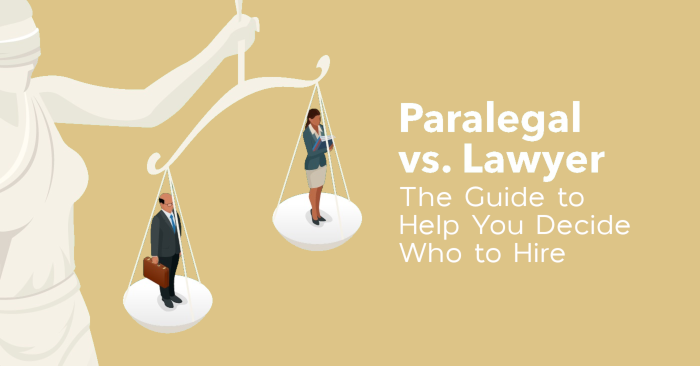DISCLAIMER: Altiorem Legal Services (hereinafter, “Altiorem”) cannot and does not provide legal advice. Altiorem is not a law firm; Altiorem’s staff are not attorneys, cannot act as attorneys, and do not act as attorneys; and any information provided by Altiorem in this article or otherwise is not a substitute for legal advice from an attorney. The information contained in this article should not be construed as legal advice, as it is not intended to be legal advice; the information in this article is provided for educational purposes only. Again, none of the information provided in this article should be construed as legal advice, and nobody should rely on or use the information contained in this article in their legal matters.
According to a study performed in 2017 by the American Journal of Public Health, nearly one in four (i.e., 25%) women in the United States are expected to get an abortion at some point in their lives.1Rachel K. Jones & Jenna Jerman, Population Group Abortion Rates and Lifetime Incidence of Abortion: United States, 2008–2014, 112 Am. Pub. Health Ass’n 1284 (2022)
The issue of abortion has touched almost everyone’s lives at some point in time.
The Supreme Court of the United States has recently overturned the case of Roe v. Wade.2410 U.S. 113 (1973) What does this overturn entail?
HISTORY OF ROE v. WADE
In the landmark United States Supreme Court case of Roe v. Wade, a pregnant single woman, Roe, brought a class action lawsuit before the Court challenging the constitutionality of the Texas criminal abortion laws, “which prescribe procuring or attempting an abortion except on medical advice for the purpose of saving the mother’s life.”3Id. The Supreme Court found the Texas criminal abortion statutes to be unconstitutional.
As a result, since 1973, Roe v. Wade has held that a woman may choose to have an abortion until a fetus becomes viable, based on the right to privacy contained in the Due Process Clause of the Fourteenth Amendment.4See id.
However, on June 24, 2022, in a historic decision, the United States Supreme Court reversed the ruling in Roe v. Wade, declaring that the constitutional right to abortion no longer exists.5Dobbs v. Jackson Women’s Health Organization, 945 F. 3d 265
HOW WILL THE OVERTURN OF ROE v. WADE AFFECT WOMEN IN THE UNITED STATES?
With the overturning of Roe v. Wade, it is now up to the states to decide whether abortion should be legal.
In some states, abortion will remain legal and available, as those states already had policies in place prior to the overturning of Roe v. Wade; these states include Washington, Oregon, Nevada, California, Alaska, Hawaii, New Mexico, Colorado, Minnesota, Illinois, New York, Maine, Massachusetts, New Jersey, and Maryland.6Laurie Sobel & Amrutha Ramaswamy, 16 States and DC Have State Laws Protecting the Right to Abortion if Roe v. Wade Is Overturned (June 17, 2022), https://www.kff.org/womens-health-policy/slide/16-states-and-dc-have-state-laws-protecting-the-right-to-abortion-if-roe-v-wade-is-overturned/
Some states have pending litigation regarding an abortion ban, including Montana, Nebraska, Kansas, Iowa, Michigan, Indiana, Pennsylvania, Virginia, and North Carolina; for now, abortion remains legal in these states.7See id.
There are also states where abortion remains legal but only to a certain gestational age; e.g., in Ohio, South Carolina, and Georgia, abortion remains legal until six weeks of gestation.8See id.
In Utah, a judge temporarily blocked the state’s trigger ban on most abortions, and a ban on abortion after eighteen weeks of pregnancy is in effect.
Per Utah Code § 76-7-302, an abortion can be authorized under the following circumstances:
- The unborn child is not viable; or
- The unborn child is viable, if:
- the abortion is necessary to avert:
- the death of the woman on whom the abortion is performed; or
- a serious risk of substantial and irreversible impairment of a major bodily function of the woman on whom the abortion is performed; or
- two physicians who practice maternal-fetal medicine concur, in writing, in the patient’s medical record that the fetus:
- has a defect that is uniformly diagnosable and uniformly lethal; or
- has a severe brain abnormality that is uniformly diagnosable; or
- the woman is pregnant as a result of:
- rape;
- rape of a child; or
- incest; and
- before the abortion is performed, the physician who performs the abortion:
- verifies that the incident has been reported to law enforcement.
- the abortion is necessary to avert:
In Utah, unauthorized abortions can be charged as third-degree felonies.9See Utah Code § 76-7-314
It is extremely important for women to know their rights regarding abortions and/or having to carry a fetus to term so that they know the legality and legal consequences of their actions.
CONTACT US TODAY!
Do you need help with reproductive rights issues? Let Altiorem help you today with affordable, top-quality legal services.
Expertise. We are knowledgeable, skilled, and experienced in the process of reproductive rights and in drafting all manner of legal documents, such as briefs, pleadings, motions, memoranda, letters, contracts, etc. If you need a top-quality, professional, excellently written, well-researched, and compelling legal document drafted, then look no further!
Quality. We produce top-quality, properly written legal documents with impeccable grammar, punctuation, spelling, structure, flow, information, compelling legal arguments, and persuasive legal conclusions. You can see the quality of our work on our work samples page, where you can peruse and evaluate our writing, as well as our other blog posts.
Experience. Our paralegals are highly experienced in working with attorneys, other paralegals, and court personnel.
Customer Care. Navigating the Utah legal system can be daunting and confusing. Let Altiorem relieve your stress and be your guide. Altiorem has a team of professional paralegals ready to work for you. We want to give you the best chance at getting an outcome for your case that you will be happy with. We are happy to receive documents via email from you, speak with you on the phone, look through court files, or even translate documents (English / Spanish)!
Accessible. If you are interested in retaining our services, we can be contacted at (801) 855-6541 (text or call) and at altiorem@altioremlegalservices.com. If you have a project in mind that you would like us to work on, please click here to send us a project request and get a quote. Alternatively, you can send us an email detailing the work you need to be performed, and a real person will respond promptly.
Thank you for your attention and consideration.



